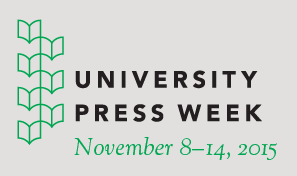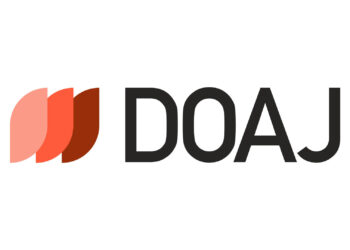 Editor’s Note: This is the second in our new series of posts focusing on University Presses, put together by The University of California Press’s Alison Mudditt. The previous post in the series can be found here.
Editor’s Note: This is the second in our new series of posts focusing on University Presses, put together by The University of California Press’s Alison Mudditt. The previous post in the series can be found here.
It is not hard to find plenty of articles, post and comments about the gradual decline of university presses (here in the Scholarly Kitchen as much as elsewhere). But for those who care to look more deeply, there’s a new narrative emerging. Like all publishers, university presses are facing their fair share of challenges but many are successfully redefining their role in the digital age. There is a flourishing of innovation and renewed energy as individual presses chart their paths into the future and an increasing number diverge from business as usual. In celebration of University Press Week, we asked six “pop-up Chefs” to tell us what they think are the unique contributions that university presses make to scholarship and scholarly communication.
Kathleen Fitzpatrick, Associate Executive Director and Director of Scholarly Communication, Modern Language Association
Daniel Coit Gilman, in establishing Johns Hopkins University Press in 1878, noted the common purpose that university and press both served: “It is one of the noblest duties of a university to advance knowledge, and to diffuse it not merely among those who can attend the daily lectures — but far and wide.” The press’s function in publishing was and has been intimately tied to the university’s function in knowledge production, and it in fact completes that work: until the work done within the university is known “far and wide,” it cannot genuinely be claimed as knowledge.
But a crucial aspect of that function – perhaps the most important – goes unremarked here: the university and its press operate in relative protection from the marketplace and its requirements. University presses, in fact, were necessitated as a channel through which the university’s knowledge could flow precisely because commercial presses were uninterested. This rejection turned out to be a benefit for scholarship, especially in small, specialized fields: just as the work done in university laboratories could follow the at times idiosyncratic questions asked by scientists without immediate pressures toward product-oriented utility, so scholarly authors were able to explore their fields in relative freedom from questions about the profit potential of the work they produced.
This is not to say that university presses produced no successes in the marketplace. They did, of course — and there’s an argument to be made that those successes paradoxically helped to erode the relationship between the press and the university, as publishing came to be viewed as a mode of potential revenue production.
My hope for the university press in the twenty-first century, as pressures toward entrepreneurialism grow across all sectors of the university, is that it might serve as a reminder for all of us of that greater mission, and that its exploration of new platforms and processes for opening up scholarly communication in the digital realm might help our institutions refocus on the goals of advancing knowledge and diffusing it far and wide.
Katherine Newman, Provost & Senior Vice Chancellor for Academic Affairs, University of Massachusetts, Amherst
I don’t think it is an exaggeration to claim that university presses are essential to democracy. Alongside journalists who are charged with the responsibility of reporting the truth, university presses reach into the darkest corners of our society and shine a light where citizens, students, and readers of all stripes can come to understand the work we have left to do to form a more perfect union. They provide an opportunity to dwell at length on the social problems of our time and of time’s past. Those explorations take years to produce and need to be conveyed at a level of detail, thoroughness, and quantitative/qualitative complexity that few other media can afford.
The best of what university presses produce shapes public conversation about enduring problems of poverty, segregation, inequality, family pressures, political participation, education, and a raft of other issues with which our society has to grapple. That public influence often leads us to better solutions. But the answers will not gain traction without rousing citizens to care, to understand the depth of the issues and the ins and outs of different policy directions. This is what university presses do. They raise awareness through the vehicle of scholarship.
At a time when the political arena is frazzled by polarization and a lot more heat than light, the university presses perform a critical public service: the pursuit of the truth. And for this, all of us in higher education and the world of public debate are in their debt.
Niko Pfund, President and Academic Publisher, Oxford University Press
University presses are the primary publisher in many disciplines (mostly in the humanities and social sciences) of what might be called “intra-tribal publications”: very specialized, high-level scholarship that is written by scholars for scholars. Additionally, a cross-section of university press books serves as an important translational bullhorn for the academy, injecting its research and ideas into the public arena. At a time when the amount of unhelpful white noise around important issues of the day seems ever louder, university presses — and, more to the point, their authors — anchor these conversations in empiricism and substance. A recent, oft-cited example is Thomas Piketty’s book on income inequality, Capital in the Twenty-First Century (Harvard). In the wake of the publicity frenzy around the book, some pointed out that relatively few people seem actually to have read it. I think this misses the point. Piketty’s book served as a springboard for an international conversation on one of the most pressing challenges society faces, one that ripples out into virtually all aspects of contemporary life. It put income inequality on the radar, injected the issue into national and international politics, and served as a screen of sorts onto which people broadcast their own perspectives on the issue. Another conspicuous example of this important role was the October Atlantic cover piece by Ta-Nehisi Coates on mass incarceration which featured the work and commentary of almost twenty scholars whose work formed the backbone of the article, most of which were published by university presses.
Philip Nelson, Professor of Physics, University of Pennsylvania
I had not realized, until I checked my personal bibliography, just how many of the science books I love most were published by university presses. These include not only timeless classics like The Character of Physical Law by Richard Feynman (MIT) and Random Walks in Biology by Howard Berg (Princeton), but also less widely familiar works like Chance in Biology by Denny and Gaines (Princeton) or The Pleasures of Counting by Körner (Cambridge).
What is it about university presses that causes so many of the books I love to gravitate to them? For one thing, the books on my list are very eclectic in form–few are standard-issue university textbooks that slot exactly into any widely-taught course. Some are short and focused; others range widely over the author’s thoughts. Some are records of public lecture series; others are technical. All bear the visible traces of individual personal style, instead of the homogenized, focus-grouped non-style of a book designed to be a mass seller. University presses seem to understand the importance of a visible, interesting author.
Perhaps most importantly, university presses seem to choose carefully what science books they will publish, with the advice of real experts. They don’t just run a thousand titles and see which sink or swim in the market. They don’t just choose authors with Nobel prizes, nor just authors with previous best-sellers, neither of which is any guarantee that a new book will become one that I will love. Maybe they also… love books, as I do.
Jon E. Cawthorne, Ph.D., Dean of Libraries, West Virginia University
University press (UP) operations make significant and meaningful contributions to scholarly communication. First, UPs publish scholarly work that large commercial publishers may not. Second, they remain important and vital measures for promotion and tenure, especially in the humanities and social sciences. Since our Press reports to the Libraries, I am uniquely positioned to view the influence and outstanding work of press directors, acquisitions staff, production and design, editors and marketing staff on the process to publish and promote scholarship. For all of us invested in the information/education/knowledge industry, we should think about how a UP thrives in the 21st century. It is time to explore supportive models that embrace and encourage the critical work of the UP and incubate changes in models of scholarly communication. I’d start by asking questions that reframe what we know about our current environment: What pressures do presses currently face while contributing to scholarship? What if presses published without the pressure to compete in the marketplace? How could presses thrive by reporting to research libraries? How can we transform the cultures of research libraries and presses to establish new, sustainable access models of scholarship? University presses have been and will remain integral to scholarly communication now and in the future. Leaders across our collective information/education/knowledge industry must ensure that presses live comfortably thereby strengthening all UPs and improving the health and impact of scholarly communication. It is time we take actions toward a more sustainable future of scholarly communication and the UPs are at the foundation.
Leila Salisbury, Director, University Press of Mississippi
One of the most important and unique roles that university presses play in the modern scholarly ecosystem is that of connector. University press editors and directors are connectors and midwives, bringing together a community’s scholarly centers and cultural organizations to be in conversation with each other about developing projects, trends, and areas of mutual interest.
Acquisitions editors, who benefit from countless hours of conversation and interaction with scholars, have the ability of being able to see larger trends within areas of interest and even across disciplines. These editors can identify emerging areas of scholarship, and perhaps even more importantly, identify where the critical “holes” in the scholarship exist. One of the most useful questions an editor asks is, “What’s the book in your field that needs to be written?” That editor is in the position to encourage that book into being, to connect scholars working on topics of mutual interest, or even to recommend another editor or publisher with a desire to publish on that topic.
This nurturing and connecting role extends to the peer review process. Editors work to choose the most useful reviewers, academics with specialized knowledge who are in a position to give feedback that will strengthen a manuscript and to suggest additional pieces of scholarship the manuscript should be in conversation with. An editor will know who the book in development is truly for and can work to see that the piece of scholarship reaches that reading audience in the most useful ways.
Discussion
13 Thoughts on "University Presses in Decline…Not so Fast"
university presses – That’s what you use to crush the hopes and dreams of college students, right?
If this is the second in the series, where is the first? Clicking on the “university press week” tag only brings up this post.
Thanks for pointing this out, I’ve added a link. The first post Alison put together can be found here:
http://scholarlykitchen.sspnet.org/2015/10/19/guest-post-alison-muddit-interviews-geoffry-crossick-on-an-age-of-challenge-and-opportunity-the-hefce-report-on-monographs-and-open-access/
The first was my recent interview with Professor Geoffrey Crossick about his report on OA monographs. These posts aim to widen the coverage of issues here in the Scholarly Kitchen and are not specific to University Press Week – or to university presses!
Leila Salisbury has usefully articulated some of the “value added” that acquiring editors bring to the process of scholarly communication, but there are even more roles they serve than those that Leila identifies. In writing an essay about “Listbuilding at university Presses” as the final essay in a volume titled Editors as Gatekeepers edited by James J. Fyfe and Rits J. Simon (Rowman & Littlefield, 1994), I wrote in detail about each of the following roles: hunter, selector, shaper, linker, stimulator, promoter, ally, reticulator, and listbuilder. That essay (later abridged for an article in the Journal of Scholarly Publishing, January 1999) is available here: https://scholarsphere.psu.edu/files/sf268g973
Adding to what Jon Cawthorne says here, I would suggest that, looking to a future in which libraries will be involved more actively as publishers themselves and acknowledging Kathleen Fitzpatrick’s recommendation that presses revert to an earlier model where they served their own universities first and foremost, it may become an important function for presses and libraries together to produce “open education resources” in the form of textbooks written by faculty for use on their own campuses. We already have some models for this, at SUNY Geneseo where the library has such a program under way and at the University Presses of Florida, which sponsors a similar program. Temple is another press that has dipped its toe in these waters.



